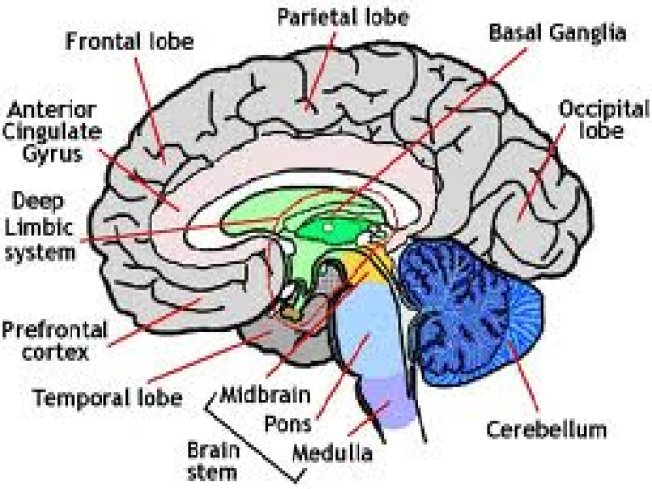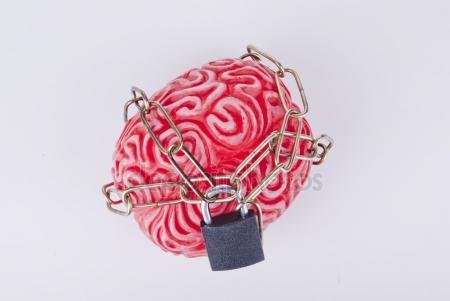
We get the feeling of pleasure when we do certain things. We enjoy such feelings. What happens when sour and compelling feelings arise when we fail to repeat such actions that initially brought pleasure to us?
Dependencies (physical, chemical or psychological) or in extreme cases addiction are common conditions prevalent in our society
Statistics substantiate this claim
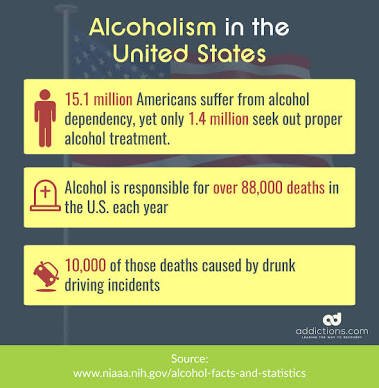

These ranges from the OBVIOUS drug, alcohol Dependencies pornography, sex addictions to the NEGLIGIBLE food, social media addictions and the likes.
To buttress the last phrase, do you know that sugar is more addictive than cocaine? “Research Shows Oreos Are Just As Addictive As Drugs,” experiments were carried out with lab rats
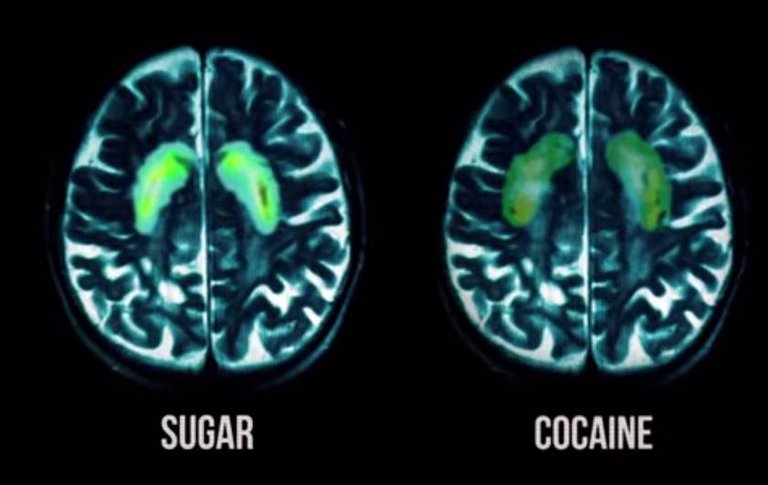
The brain is the centre for coordination of the body ( both nervous and hormonal). Our coordination is optimal when the activities of the brain are balanced; a tilt in this balance of the brain activities is what is in effect suffered in the case of dependencies and addictions.
Let's take a look at the parts of the brain associated with/affected during these conditions:
The prefrontal cortex----- the centre for logic, reasoning, for ideation and decision making. We may see it as the modern and rational brain
The limbic system----- It is the reward circuitory of the brain, it recalls the memory of pleasant experiences we have had in life
The midbrain----- responsible for quick survival activities like sight, hearing fight or flight responses; in fact it handles these for just 15 seconds. It may be considered as the selfish, primitive and irrational brain
source
The big question is this, how does the brain get affected when we take these substances?
When we take these psychoactive substances (alcohol, drugs...), abnormal amount of pleasure-triggering neurotransmitter known as dopamine is released...
Dopamine is a substance essential for survival behaviours like feeding, social interaction, even procreation by stimulating the 'hedonic hotspots' of the brain. When abnormal amount of dopamine are released, other neurotransmitters such as glutamate are released. these overwhelm these hedonic spots of the brain leading to addiction
Glutamate, for in stance is necessary for memory, hence this solves the puzzle why we remember every bit of pleasurable experience we obtain from taking the psychoactive substance or doing that addictive behaviour, and we are compelled (not just reminded) to do it again and again!
In effect, the brain reward system has been hijacked,
Think of it this way;
The case of behavioral addiction
some of these behaviour are for our survival, example, eating, the brain rewards us with pleasure sensation ( to encourage us enjoy such activity). As a result of these addictive behaviour, the brain is then manipulated to constantly compel us to repeat such behaviour
The case of psychoactive substance taken
These substances manipulate the brain to give a false impression/false reward of transient pleasure, (after all we have not done anything to encourage survival)
Let's approach it more scientifically;
These psychoactive drugs have different mode of actions to bring about their action
Cocaine block the dopamine transporters after the surge of dopamine in synapses
Methamphetamine displaces dopamine at neuron's terminal into synapses
Heroin block dopamine inhibitors making dopamine flood the synapse
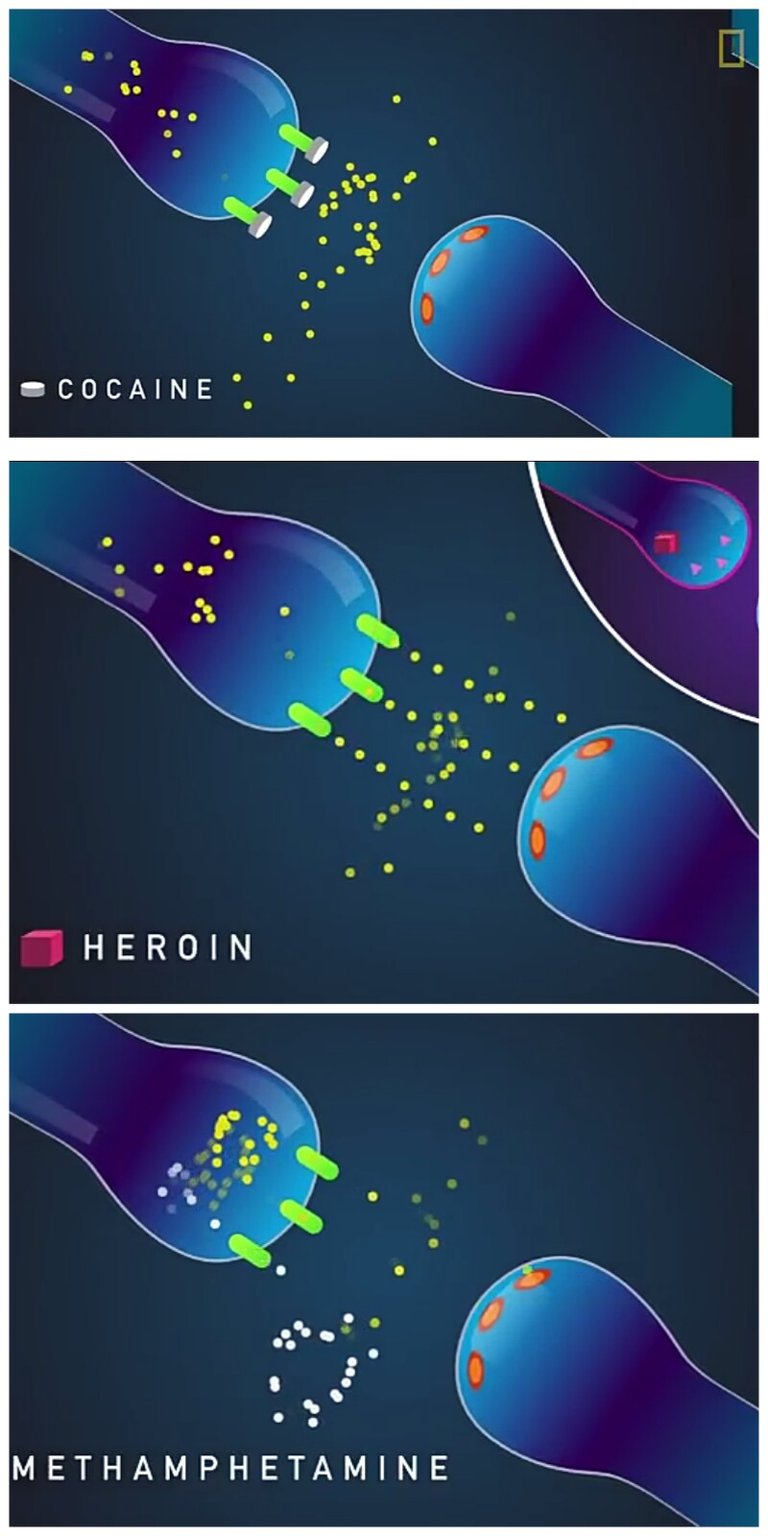
One thing is common; dopamine floods the synapse, hence strong neural connections are established. In effect the brain is rewired in a negative fashion
Are there remedy?
The good news is this; there are solutions!
Science has proffered different strategies; the central focus is this: 'to weaken the negative brain's neural connections made in addiction process.' This is the positive 'rewiring' of the brain and this takes time and patience.
Passing electromagnetic pulses over the prefrontal cortex helps in the treatment of cocaine
Baclofen (for treatment of muscle spasm) has shown a promising future for treatment of alcohol addiction.
Scientifically I recommend a psychological approach; the non reactivity principle.
I will give a brief overview, but you may wish to research more by clicking the hyperlink
This non pharmacological approach has shown great success in treatment of these conditions,
It involves
-avoiding to suppress the cravings
- observing, and acknowledging them. This gives one cognitive control and lessens the intensity of them. It also gives the patient a third person perspective. It gives you an edge over the cravings, makes you non aggressive and ultimately weakens these neural connections
If you are a Christian, I strongly recommend that you go to God in prayers to help you out of that challenge
Let's say no to brain hacks/ hijack, let's claim our brain back!
